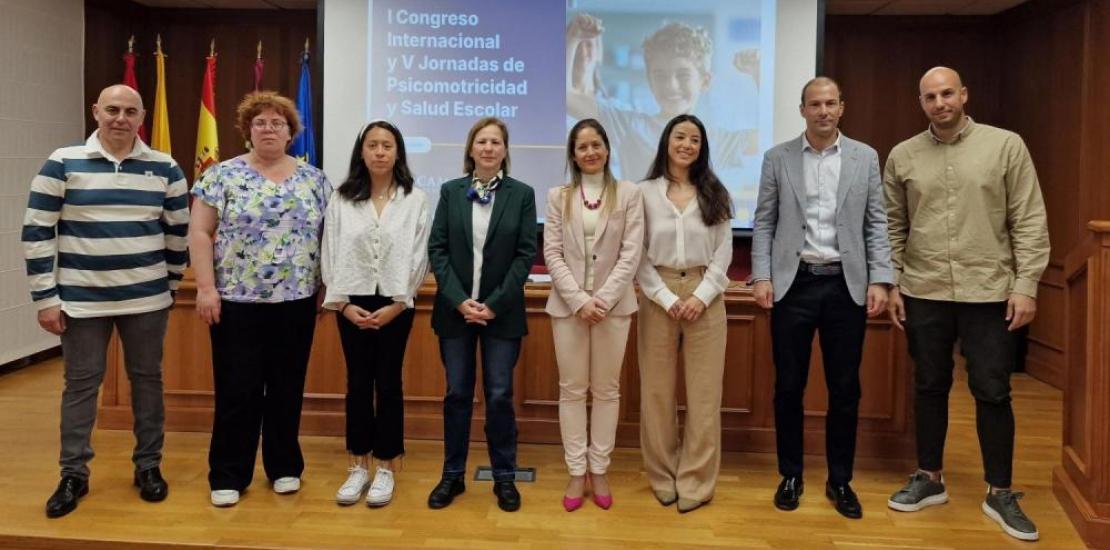UCAM reinforces the role of psychomotor skills in childhood with a global congress
UCAM and the Fundación Séneca organise a hybrid event with experts from 23 countries to raise awareness of the importance of psychomotor development in children's health
UCAM held the 1st International Congress and 5th Conference on Psychomotor skills and School Health at its Los Jerónimos Campus, an academic event consolidated as a model in the field of education and children’s health. The initiative, organised by the Education and Quality of Life Research Group (ECAVI) of UCAM’s Faculty of Education in collaboration with the Fundación Séneca, has gathered speakers of renowned national and international prestige and participants of up to 23 countries in a hybrid format (face-to-face and online).
The congress was addressed to professionals of education, child psychology and related disciplines, as well as to students interested in expanding their knowledge on psychomotor development in childhood, an essential aspect for comprehensive training, which was highlighted in the different meetings and presentations, in which some aspect of brain development and the stages of maturation and learning were also addressed.
The director of the conference, Pilar Vílchez, who also directs the UCAM Master's Degree in Psychomotricity and School Health, expressed that ‘this conference was created as a complementary training programme to address the lack of psychomotricity in undergraduate studies, especially in early childhood and primary education. Our aim is to turn the master's degree into the first official degree in psychomotor skills in Spain.’
Professor Vílchez explained that this edition marks a milestone, as it is being held for the first time as an international congress, after five years of experience as an academic conference: ‘Thanks to the support of the Fundación Séneca, we could take this leap in quality. The international interest has been huge, with speakers from countries such as Romania, Italy, Peru, Ecuador, Colombia and Portugal, as well as national experts from universities such as the Complutense University of Madrid or the University of Barcelona.’
This academic event highlighted the need to integrate psychomotor skills as an essential part of the educational syllabus, with the aim of training teachers and professionals capable of effectively contributing to the physical, emotional and cognitive well-being of children.




